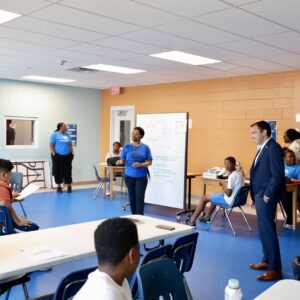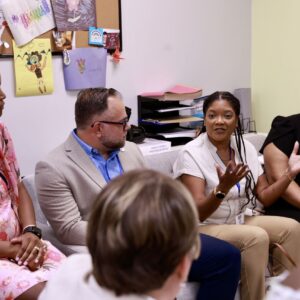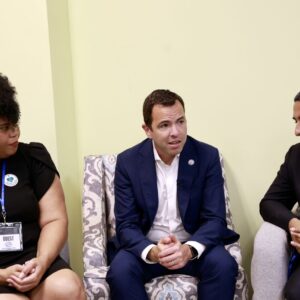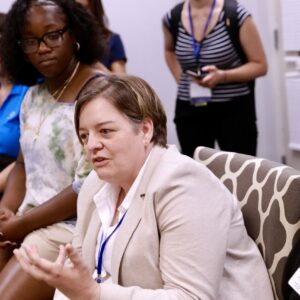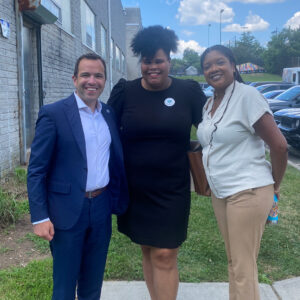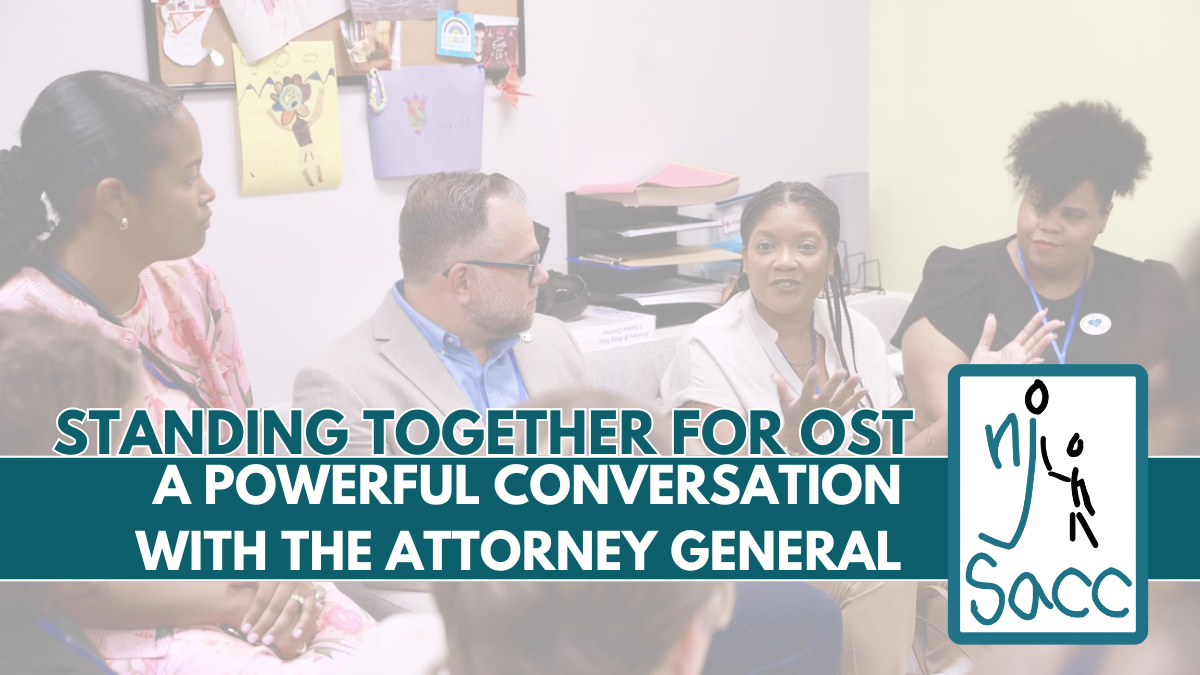
Standing Together for OST — A Powerful Conversation with the Attorney General
Yesterday, NJSACC had the honor of joining Attorney General Matthew Platkin and leaders from across the state for a community roundtable at the Boys and Girls Club of Newark.
The discussion centered on the devastating impact of proposed federal education funding cuts, including $158 million at risk for New Jersey.
We thank AG Platkin and his team for powerfully elevating the voices of youth-serving organizations. His remarks made clear: these cuts would deeply harm local out-of-school time (OST) programs, educators, and the families who rely on them. We are grateful that OST stakeholders were given the opportunity to share the real, on-the-ground impacts these losses would bring.
At NJSACC, we emphasized the economic, equity, and justice consequences of defunding OST — and the ripple effect on children, youth workers, communities, and the entire OST ecosystem. We also lifted up the importance of investing in these programs as a proven prevention and public safety strategy.
We deeply appreciate the OAG’s commitment to supporting youth through the Community-Based Violence Intervention and Prevention (CBVIP) grants and At-Risk Youth Summer Grants, which provide crucial resources to programs across the state.
We look forward to continuing this vital work — together.
Afterschool is prevention. On school days, the hours between 3–6 PM are the peak time for teens to commit crimes, be involved in car crashes, fall victim to violence, or engage in risky behaviors like smoking, drinking, and drug use. Afterschool programs are a powerful answer to youth crime and disconnection:
- They provide a safe haven that keeps young people away from violence and harm.
- They offer hope and opportunity, spaces where youth can build skills, form healthy relationships, and discover their potential.
- They contribute to long-term economic mobility through academic enrichment and workforce readiness.
NJSACC is proud to support more than 2,000 afterschool and summer programs across New Jersey that are actively working to keep kids safe, engaged, and on the path to success.
Students, families join fight against Trump education cuts
“We have national data that tells us about how during the hours of 3 to 7, how youth are more likely to get involved in the juvenile justice system, how they’re more likely to again engage in risky behavior like alcohol and drugs. So when they have a safe place to go, that means that this is part of the prevention of those issues,” said Tyneisha Gibbs, director of policy and youth advocacy at NJSACC: New Jersey’s Afterschool and Out-of-School Time Professional Network.
